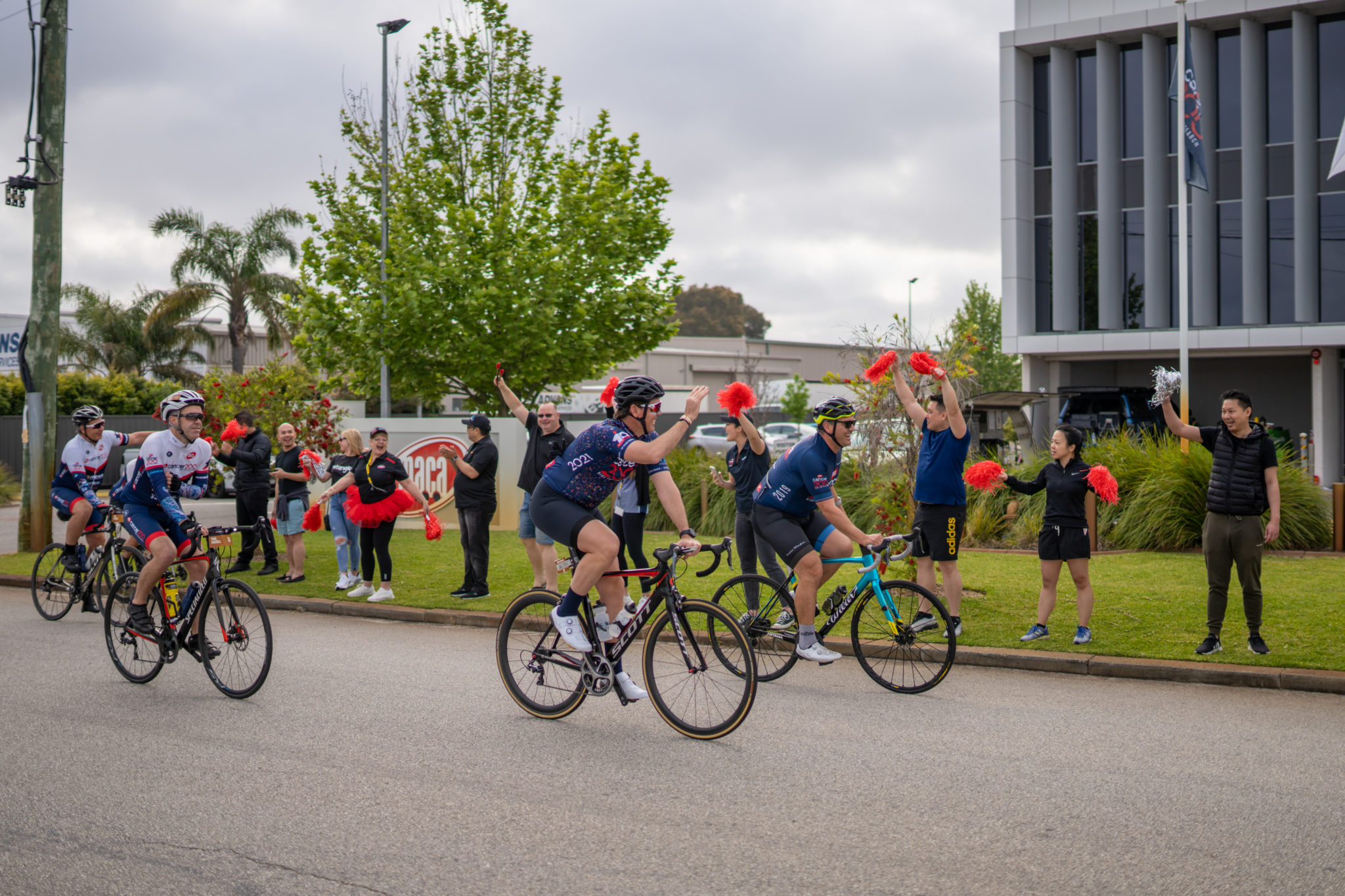
$7 million boost for Perth cancer research.
More than 1,550 riders in Australia’s biggest charity bike ride, the MACA Cancer 200 Ride for Research, raised a record $7m for Perth’s Harry Perkins Institute of Medical Research over the Oct 16-17 weekend.
The massive bike ride is a challenge, covering 200km from Optus Stadium to Mandurah and back.
A special detour past MACA headquarters in Welshpool was added this year in recognition of the nearly $20 million the mining services contractor has raised over the history of the ride.
“Our employees, our community of friends and family members, have all been personally impacted by cancer and it is a continued honour to support the Harry Perkins Institute of Medical Research as they advance medical research in order to better the lives of cancer patients,” said Geoff Baker, Executive Director, MACA.
MACA had nearly 350 riders on the road this year.
“With one in two Australian men and one in three Australian women diagnosed with cancer before the age of 85, we know that investment in cancer research is critical,” Mr Baker said.
To cut costs and maximise the amount channelled to cancer research the Harry Perkins Institute took on the management of the event two years ago in 2019.
This year MACA Ltd formed a corporate charitable alliance with traditional mining sector rivals Mineral Resources Ltd and WesTrac Pty Ltd to further reduce costs. All three provided in-kind infrastructure and logistics support either directly or indirectly by encouraging suppliers to contribute to the running of the ride event.
“About 60 percent of the riders in the MACA Cancer 200 are associated with the mining sector and it is impressive to see three large organisations who would typically be working in competition with each other come together to support this great cause,” said Director of the Harry Perkins Institute, Professor Peter Leedman AO.
“Medical breakthroughs will result from this significant financial contribution.
“Cancer research, drug development and clinical trials of new treatments are essential and for patients with hard-to-treat cancers such as triple negative breast cancer, drug resistant melanoma, pancreatic and liver cancers or brain tumours, new research discoveries are the only way to make cancer a non-lethal disease,” he said.
In the ten years of the ride nearly $50m has been raised for cancer research at the Harry Perkins Institute.
